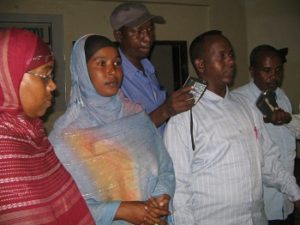LESSON
Lesson Learned: Strengthening women’s empowerment in municipal government
The overall situation regarding women’s rights in Malaysia was largely unchanged by the project. However, if the project had not occurred, it is likely that the space to discuss Muslim women’s rights would have closed further as grantee activities kept these issues in the public arena. It also seems likely that this project provided a safe space for women to discuss their problems and to find strength in collective voice. The project also gave some of the women’s groups, pro-reform media and interested Members of Parliament (MPs) the language and justifications they could use to support Muslim Family Law reform when that issue arose.
Project Partner
International Women’s Development Agency
Project Description
The project objective overall was on empowering women in eight Pacific Islands. Initially the project was to concentrate on Fiji, but after a number of specific challenges including floods, political instability and the termination of elected councilors in Fiji and the country’s suspension from the Commonwealth, the project had to be redesigned. The focus shifted from elected representatives at municipal level to women working at management and service-delivery levels in local government. The project also moved to become more regional, involving women in local government across the Pacific Islands.
The project included gender awareness training, Training of Trainers (ToT) for women working in local government, the creation of a Women in Local Government network and website, multimedia outreach to the community to promote understanding of local government and the crucial role women play in service delivery, and a research and publication component. Although redesign was forced onto project holders by the political climate, it turned out that the local government approach and the regional nature of the project were its major strengths.
Report
Evaluation Date
October 2011
Theme
Country
